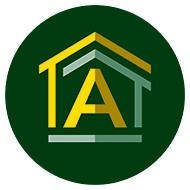
Online Safety is an integral element of our assemblies, daily PSHCE programme and we celebrate Safer Internet Day every February during our Online Saftey week.
• Be involved in your child’s online life. For many of today’s young people there is no line between the online and offline worlds. Young people use the internet to socialise and grow and, just as you guide and support them offline, you should be there for them online too. Talk to them about what they’re doing, if they know you understand they are more likely to approach you if they need support.
• Keep up-to-date with your child’s development online. Be inquisitive and interested in the new gadgets and sites that your child is using. It’s important that as your child learns more, so do you.
• Set boundaries in the online world just as you would in the real world. Think about what they might see, what they share, who they talk to and how long they spend online. It is important to continue to discuss boundaries so that they evolve as your child’s use of technology does.
• Keep technology out of the bedroom. Allowing too much privacy isn’t always a good thing, being able to monitor how and when they are going online is important. Staying up late on the computer can really wreck their all important sleep.
• Know what connects to the internet and how. Nowadays even the TV connects to the internet. Your child will use all sorts of devices and gadgets; make sure you’re aware of which ones can connect to the internet, such as their phone or games console. Also, find out how they are accessing the internet – is it your connection or a neighbour’s Wifi? This will affect whether your safety settings are being applied.
• Consider the use of parental controls on devices that link to the internet, such as the TV, laptops, computers, games consoles and mobile phones. Parental controls are not just about locking and blocking, they are a tool to help you set appropriate boundaries as your child grows and develops.
They are not the answer to your child’s online safety, but they are a good start and are not as difficult to install as you might think. Service providers are working hard to make them simple, effective and user friendly. Find your service provider and learn how to set your controls.
Useful links:
Online Safety videos Online Safety websites CEOP Internet Safety Website National Online Safety Phones, Internet, Video Games and Television Safety Online Safety Policy Fortnite Fact Sheet What Parents Need to Know About Fortnite What Parents Need to Know About Age-Inappropriate Content Momo Fact Sheet Discord Safety Mental Health and Social Media Building Cyber Resilience at Home NSPCC Online Safety HubNSPCC Cyberbullying video (Digizen from Childnet) Tagged (a film that looks at cyberbullying, sexting, digital reputations and personal responsibility StaySafe on the Internet - Primary Music Jigsaw - Assembly for 8 - 10 year olds Emily's Story Tips for Parents and Carers Helping Young People Understand Internet Safety
www.thinkuknow.co.uk/ - a website with some very useful guides and tips for keeping safe online www.ceop.police.uk/ - the police website for reporting and helping all aspects of e-safety www.saferinternet.org.uk/ - UK safer internet centre, great information and updates for parents & carers www.childnet.com/ - all round support for you and your children www.stonewall.org.uk/ - all round support specific to who may be lesbian, gay or bisexual www.kidsmart.org.uk/ - keeping safe online focused on children www.nspcc.org.uk/ - all round support for children and parents/carers including e-safety www.bbc.co.uk/cbbc/topics/stay-safe - support on e-safety aimed at students National Online Safety Important Information regarding the TikTok app Momo Fact Sheet